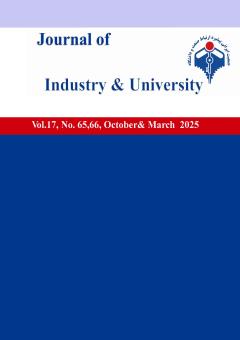Strategic Model for Improving Job Satisfaction of Faculty Members in Iranian Universities
Subject Areas : Special
Abazar Ashtari Mehrjardi
1
![]() ,
Taha Ashayeri
2
,
Taha Ashayeri
2
![]() ,
Tahereh Jahanparvar
3
,
Tahereh Jahanparvar
3
![]()
1 - Assistant Professor, Institute of Cultural and Social Studies, Ministry of Science, Research and Technology, Tehran, Iran
2 - Assistant Professor, Department of History and Sociology, Faculty of Social Sciences, University of Mohaghegh Ardabili, Ardabil. Iran
3 - PhD student in Cultural Sociology, Islamic Azad University, Tehran Branch Tehran, Iran
Keywords: Job Satisfaction, Faculty, Maslow's Hierarchy, Relative Deprivation, Job Status,
Abstract :
Background and Objective: The job of faculty members is one of the most important factors in the industrial and social development of the country, so that the quality of the human resource and human capital depends on the quality of the faculty members of educational and university institutions. An important strategy for improving the development of society is to retain and maintain professors by improving their job satisfaction. The main objective of the research is to develop a strategic model for improving the job satisfaction of university faculty members using a qualitative meta-synthesis method.
Research Method: The research method is an inductive meta-synthesis qualitative method in the period from 1370 to 1403, which was conducted using a non-probability (intentional) sampling method from 87 scientific documents (extracted from the scientific databases of Normags, Mag Iran and Iran Doc). After screening and selection, 40 scientific documents were selected as the sample size and entered the analysis phase with Excell and Maxqda 2022 software.
Findings: The results show that social (social capital, social status, leadership style, organizational culture), cultural (educational suitability of scientific and educational facilities; educational justice; ethical-university norms; educational empowerment; lifestyle), psychological (individual; occupational; personality), economic (financial satisfaction; welfare support; macroeconomic stability), political (political governance of university management), contextual (contextual length of service) are the most important strategies for improving the job satisfaction of professors
